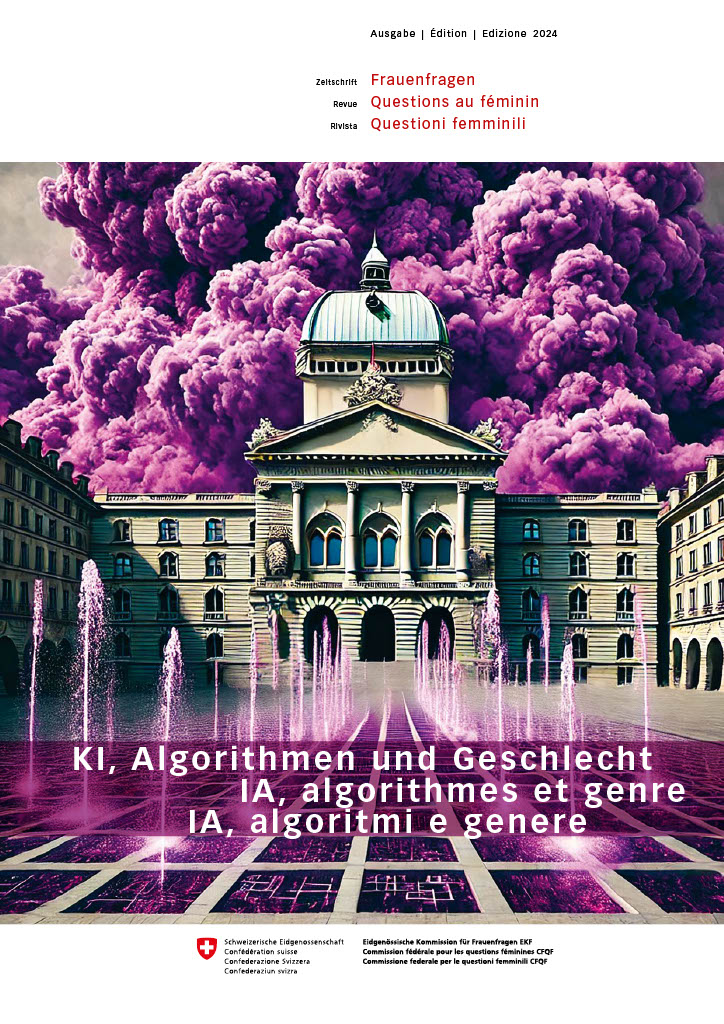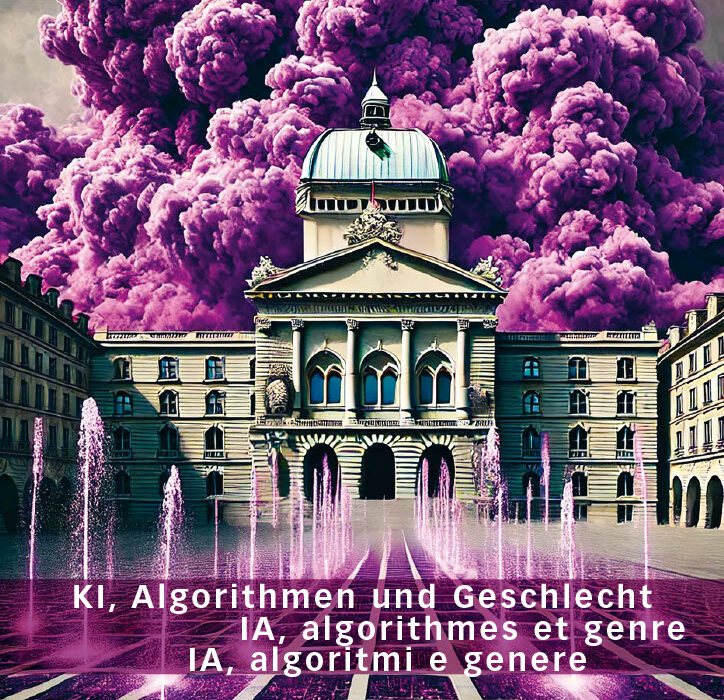Caitlin Kraft-Buchman advocates a humanistic and feminist approach in the tech sector. Founder of Women at the Table and co-founder of the multidisciplinary coalition A+ Alliance, she shares her commitment and vision for a fairer artificial intelligence.
A Feminist Research Network on AI
In 2015, Caitlin Kraft-Buchman founded “Women at the Table,” a think tank aimed at promoting women’s representation in international decision-making spheres. This experience led her to focus on algorithms, and in 2019, she co-founded A+ Alliance, a multidisciplinary coalition focused on artificial intelligence (AI). Through funding pilot projects and calls for contributions, A+ Alliance aims to be an “incubator” for innovative projects and technological and social advancements.
A+ Alliance concretely aims to fund and develop AI-related projects. Regular calls for projects are issued, and a multidisciplinary committee selects those to receive funding. Particular attention is given to the representation of minorities, both among applicants and within the groups benefiting from the final project. This process unfolds over several phases, from proposal to field-testing a prototype. For instance, a prototype for an AI system to be used in Egyptian community school classrooms—where girls are overrepresented—is under development. This tool would allow teachers to evaluate the quality of AI-generated content and customize it according to their pedagogical goals and curriculum.
Thus, the ideas developed aim to improve the quality of life of minority groups that are not usually top of mind. For Caitlin Kraft-Buchman, artificial intelligence must be feminist and, above all, as she puts it, “pro-social”—meaning it should consider often-overlooked minorities and be designed with positive contributions to everyone’s lives in mind: “This notion of inclusion and transformation implies that the communities concerned must really be at the heart of the development processes so that we create technology that we actually need.”
“We Need Different Constellations of People Bringing Their Ideas”
To achieve this, a diversity of perspectives is essential. The co-founder stresses that what makes a difference is “a multidisciplinary approach, with progressive people who care deeply about others.” Beyond representing different disciplines, it is also essential that those who have experienced the impact of algorithms participate in discussions and “co-create solutions.”
For Caitlin Kraft-Buchman, when it comes to creating tools that have a positive impact and promote genuine social progress, lived experience is as valuable as technical expertise. Therefore, the people concerned should be part of the conversation and included in development projects. And this is only possible if various groups are heard and participate in the design of these new tools that have a real utility for them: “It’s not just about creating apps for pizza delivery or social media apps.” This demand for multidisciplinarity reflects the Swiss model, which the American entrepreneur has drawn inspiration from. In her view, multidisciplinarity is also about building consensus. In both cases, hearing from different groups benefits the outcome, whether it’s public policy or a technological product.
The Potential of AI
The models funded by A+ Alliance are not technologically groundbreaking; their value lies in how they use available tools and the connection they create between those who build them and those who benefit from them. For Caitlin Kraft-Buchman, we are currently not fully utilizing these tools, often developed by a very homogeneous demographic who build tools in their own image. However, she argues that the promise of AI is to allow different perspectives to come together to create something new. But this promise is achievable only under one condition: that we keep it in mind when creating new tools with AI. In other words, this creation must be intentional, with the right questions asked from the start. Caitlin Kraft-Buchman warns that “unless we are intentional and create processes, new ideas, and new ways of thinking around this promise, we’ll just end up replicating the status quo. We now have a chance to make a new choice and an opportunity to establish new systems.”
Changing the System for Greater Impact
Another aspect of Caitlin Kraft-Buchman’s work is on the international level. Women at the Table is committed to ensuring that gender and equality considerations are included in legislation governing AI use. The founder notably contributed to developing an action plan on technology and innovation, which served as the framework for the 67th annual session of the United Nations Commission on the Status of Women in 2023, the first session to address technology and innovation.
For her, the value of this international work lies in its potential for impact. She sees international legislation as highly transformative, capable of genuinely changing how we design and use AI. Her strategy is to act at the highest possible level to “change the system.” This approach, for her, is resolutely feminist: “We are taught that women must mold themselves to fit into the system, which is very useful. And all of us have had to do it and probably still do it every day. However, now that we’re here, what we need to do is change the system so that women, in all their diversity, and other people can be themselves, and that the system can meet everyone’s needs.”
Working internationally also allows her to address the issue of responsibility. Since algorithms are created by humans in a given context, they carry societal biases already present in the data they are fed, much of which comes from the internet. “But not everyone is present on the internet,” Caitlin Kraft-Buchman points out; algorithms are designed to reflect a specific group and operate accordingly. Thus, they do not represent most people. “But instead of simply saying, ‘Oh, the algorithm said so,’ I believe we must take responsibility for the biases at the heart of algorithmic models.” And this responsibility lies with anyone who can influence how algorithmic tools are developed.
Focusing on Solutions
Taking responsibility also means looking for new solutions. For the co-founder of A+ Alliance, it’s not about simply reproducing what already exists. Through her involvement in setting standards and creating AI-based tools, she champions a proactive and creative approach. Paying particular attention to models under development is also a response to the question of mitigating stereotypes in algorithms. Once algorithmic models “contain” stereotypes, it’s challenging to eliminate them. The solution, then, is to focus on tools that have yet to be created and ensure that they are better than their predecessors. Caitlin Kraft-Buchman suggests, for example, focusing on smaller models—those unlikely to be used on a large scale but can be more refined and precise, avoiding the stereotype trap and better serving their target groups.
Mobilizing for solutions is not just about progress but also about equality: “Women and all other marginalized groups have been excluded from creating tools, establishing rules, and making decisions. If we don’t start creating tools that work for us, we will always be confined to existing structures. So now, we must think about how we can participate in these processes.” Involving people directly concerned with developing and implementing AI gives them a voice, allowing them to develop their ideas and make processes more democratic. If AI is used in many areas, with all the associated risks, potential primary victims must have a say. Placing them at the heart of AI development projects democratizes the development process: “As feminists, activists, or ordinary citizens, we will never be fully included in this world. In a way, we give up our power. That’s why I think these small, simple experiments are so important. Ultimately, I believe it’s a matter of democracy and creating tools that enable it to function.”
Whether through the work of Women at the Table or A+ Alliance, her commitment to promoting innovative projects and international efforts to legislate AI to consider minorities and democratic processes, Caitlin Kraft-Buchman always has an eye on the future. What do we want for the future? What kind of future? What would an AI look like that not only doesn’t discriminate but also empowers communities? Regarding solutions, she believes we must now ask these questions before it’s too late. Is it possible to miss the mark? Yes, she warns us: “It’s a dangerous time; if we continue as we always have, producing the same things at a faster pace, I believe it’s dangerous for democracy. It will widen existing gaps and inequalities, harming social cohesion.” And she adds, “There is no democracy without women.”
Read the original publication in French here.


